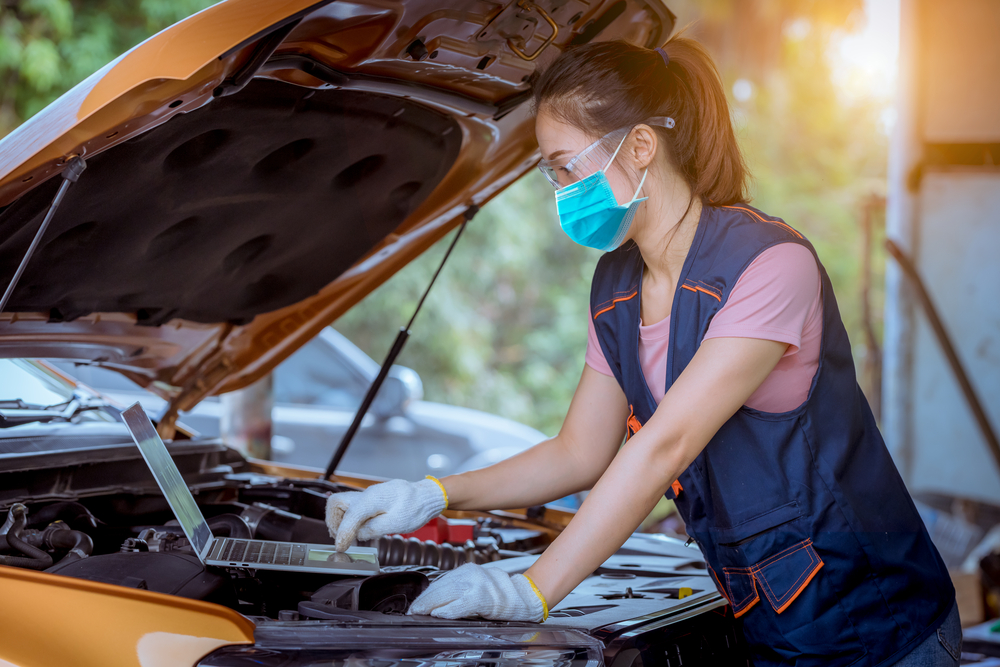Auto body repair shops are everywhere, and most of them look the same on the outside. But when you start comparing one body shop to the next, you might find that some of them are certified while others aren’t. What makes auto body repair certified? And does it even matter if you take your car to a certified body shop?
Certification has always been important, and as auto technology continues to advance, knowing about those credentials will help you choose the best body shop in your area.
The Meaning of Certified
When you look into what makes auto body repair certified, the answer is simple. A certified collision repair shop has technicians who were certified by automotive manufacturers to perform certain repairs. An auto body shop with trained and certified technicians is going to be the right choice when you need repairs done to your vehicle. Certifications show that the body shop prioritizes quality instead of speed when it comes to repairs.
Additionally, “certified” shows that the shops will have invested in procuring the proper tools from manufacturers to make the required repairs. This comes at an expense to the auto body shop, but it proves to you that they are reputable.
Why Auto Body Repair Certification Matters
But why does any of this matter? Certification proves that an auto body shop has higher quality training and equipment, so they can make higher quality repairs. Car repair is not as straightforward as it was in the past. Technicians now have to focus on the technology within the vehicle, not just the machinery. Since technology and auto body parts function simultaneously and are dependent on one another, technicians need to follow set specifications from the manufacturer in order to do the repairs correctly and maintain the warranty (if there is one) on the vehicle.
When auto body repair is certified, it’s also good for the value of your vehicle, because the body shop will use original equipment manufacturer (OEM) parts. Although OEM parts are slightly more costly than aftermarket parts, they are designed to fit perfectly in your vehicle’s make and model. Plus, you get a warranty should something happen to those replacement parts.
Manufacturer Certifications All Differ
At Elmer’s Auto Body, you will notice that we have a number of industry-leading certifications, including I-CAR Gold-Glass, ProFirst, and Assured Performance Certified Care Center. We are also certified by manufacturers like Ford, GM, and Hyundai to repair their vehicles. All brands have different standards, meaning that each certification has a unique set of requisites.
Some brands even add extra steps for their collision repair certified facilities. For example, GM stipulates that certified auto body repair shops scan the vehicles before and after the repairs. GM also has technicians perform repairs that they were specifically trained and certified to do.
Many manufacturers conduct audits on their certified collision repair centers to make sure that the facilities are maintained and that rules are being followed. This ensures that the technicians are worthy of the certification—and that every repair is done correctly.
So when you see that an auto body repair shop is certified, you know they have undergone training, use OEM parts, and follow strict rules in order to keep their status.
What Are The Best Auto Body Repair Certifications?
Aside from having certifications from manufacturers that prove an auto body shop has the correct equipment for repairs, they should also have additional credentials. An example of this would be the I-CAR Gold Class certification. The highest honor from I-CAR is Gold Class, which means that the auto body repair shop utilizes state-of-the-art technologies and employs only the most professional and trained staff.
To visit an I-CAR Gold Class auto body shop is to have an outstanding experience. They will also have employees who specialize in specific areas, such as painting, dent repair, framework, and more. Keeping that I-CAR certification is also an ongoing process. There are several programs that are offered for employees to take annually, such as Hands-On Skills Development, Vehicle, and Technology Specific Training, and Welding Training and Certification.
An auto body repair shop certified with I-CAR is going to be superior to one that isn’t. Look for I-CAR Gold Class facilities whenever you need repairs.
Looking For Certified Auto Body Repair?
So what makes auto body repair certified? The training and the equipment that goes into getting the certification. Auto body shops regularly send their employees to training and will purchase specialized equipment to provide better service to customers like you. That’s why you should choose collision repair shops like Elmer’s Auto Body, which has 8 certifications and is a certified collision repair facility for several manufacturers.
Contact our team today to learn about our high-quality services or schedule your appointment.






